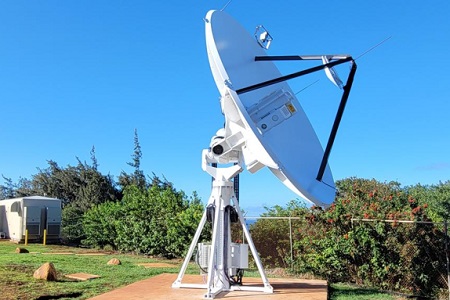 SES has announced that Comtech Telecommunications Corp will supply antenna systems for its second-generation medium earth orbit (MEO) O3b mPOWER gateways.
SES has announced that Comtech Telecommunications Corp will supply antenna systems for its second-generation medium earth orbit (MEO) O3b mPOWER gateways.
The antenna hardware comes in a range of sizes – from the 5.5-metre gateway intended for telemetry, tracking and control (TT&C) to smaller antennas for enterprise and government use. The antennas can also be deployed as customer gateways for O3b mPOWER.
O3b mPOWER is the successor to SES’s first-generation O3b MEO constellation. The software-driven communications system is capable of delivering connectivity services from tens of megabits to multiple gigabits per second. It is scheduled for launch in the coming months and is expected to be operational by end of 2022.
Based on a number of innovations, the new Comtech antennas are a significant improvement over the existing O3b gateways as the dual-drive X/Y antennas offer huge advantages over traditional Azimuth/Elevation systems, including precision tracking, multi-orbit support, easier installation, carbon fibre reflector, lower CapEx and OpEx, and surface accuracy.
Commenting on the agreement, Michael Porcelain, President and Chief Executive Officer of Comtech Telecommunications Corp, said: “We are pleased that SES selected Comtech’s X/Y antenna products for critical telemetry, tracking and control facilities as well as customer data gateways and user terminals to support their next-generation O3b mPOWER ground station infrastructure. These antenna products provide unique technical and commercial advantages in support of non-geostationary constellations over traditional antenna products.”
Stewart Sanders, Executive Vice President of Technology and O3b mPOWER manager at SES, added: “These next-generation gateway antennas are especially important for customers who want to land data at their own site whilst being able to tap into the differentiated O3b mPOWER connectivity services. For our government customers, this is especially attractive since we have a compelling offering with our low-latency, high-throughput services delivered in a secure environment as if they were using their own dedicated satellite network. This is made possible, in part, due to these gateways that are now more resilient, lighter and easier to install.”












Add Comment